- Home
- Nancy Buckingham
Design for Murder Page 2
Design for Murder Read online
Page 2
“How is Sir Robert taking it?” he enquired.
“As you would expect for someone with a bad heart. It’s been a terrible shock.”
“I’ll try not to keep him too long,” Neil said, as he sat down again and took out a pen, “but I wanted to talk to you first. I imagine you were as close to Oliver Medway as anybody.”
There was a suggestion in his tone that I didn’t like, and I reacted sharply. “Just what do you mean by that?”
Neil regarded me blandly, his sandy eyebrows raised. “You were his assistant, weren’t you? Working alongside him day after day, you must have come to know the man pretty well.”
“I suppose that’s true,” I acknowledged, only partly mollified.
“Right. Well now, there is no obvious sign that a search was made—either of the body itself or of the premises. So can we, for the moment, rule out theft as a motive for the killing? You haven’t noticed anything missing?”
“No, nothing is missing as far as I can see. At least, not in the studio. I can’t really say about here in the flat.” I glanced around me quickly. “It doesn’t look as if anything’s been stolen, and the lounge seemed the same as usual when I was in there just now.”
“You’re familiar with the flat, are you?” he said, making a few rapid notes in shorthand.
“Well, yes. Oliver never tried to keep the studio entirely separate from his flat, so I’ve been in here quite often. Most days, though, I only came through to make coffee in the kitchen, and to use the bathroom.”
“I see.” Neil nodded. “Can you think of anything that has occurred recently, anything at all, that might help throw light on Oliver Medway’s death?”
I shook my head. “I don’t think so.”
“Was he behaving in any way out of character? Did he appear to be worried or anxious lately? Had he been involved in any quarrels or disputes?”
I didn’t quite know what to say. Oliver had carried a chip on his shoulder for being denied what he regarded as his birthright. He thought that by now his father should have allowed him a major share in managing the estate, and he bitterly resented the fact that Sir Robert, despite his ill health, still insisted on absolute autonomy. But a reasonably satisfactory modus vivendi seemed to have been found. At least their relationship wasn’t actively hostile.
There were Oliver’s complicated involvements with women, of course. Mrs. Cynthia Fairford was the latest, but as far as I knew they were still at the stage of sweetness and light. The commission we’d recently landed for redoing the drawing room of her home was largely an excuse for Oliver to make frequent and protracted calls at the Old Rectory. When I’d pointed this out to him, he’d grinned back unashamedly. “Nice for me, good for business.” There was a lot about Oliver that I disapproved of, but he never gave his clients short change. Although he’d had no formal training in interior design, he’d had a flare for it. And in the fifteen months I’d been working with him I’d learnt an enormous amount.
I answered Neil’s question decisively. “No, I can’t think of anything significant. Oliver has been acting much the same as always. He was in a perfectly cheerful mood when I last saw him.”
“Which was when?”
“Yesterday evening, about six-thirty. I was staying a bit late—working on an estimate—but Oliver had a date and he went through to the flat to get ready.”
“Do you know who his date was with?”
“No, he didn’t tell me and I didn’t ask. Oliver went out almost every evening.”
Neil’s grey eyes flickered. “With you, sometimes?”
“Yes, as a matter of fact,” I said, letting him see how much I resented his tone. “Once in a while Oliver would take me out to dinner.”
“How often is once in a while?”
I shrugged. “Maybe every couple of months.”
“You didn’t go out with him more often?”
“No. Well, not in the evenings.”
“When else, then?” he persisted.
“We often went to see clients together, of course,” I said irritably. “Apart from that, I used to ride with Oliver.”
“Ride with him?”
“Horses. Sir Robert still keeps a few in the stables here, and they have to be exercised. So Oliver and I often used to go out for an hour or so when we’d finished work for the day.”
“And afterwards?”
“Afterwards,” I said coldly, “I would go home, and Oliver would go out wherever it was he was going that evening.”
For several moments Neil remained silent while he brought his shorthand notes up to date. When he next spoke it was on a new tack, and his tone was so chillingly formal that it shook me.
“Now, Miss Yorke, I want you to tell me exactly what happened this morning. How you came to discover Oliver Medway’s body.”
Miss Yorke? Okay, so Neil Grant and I had never been really close friends, but in the days before I’d gone off to art school in London to study design I’d often met up with him at discos, in coffee bars, at the Gilchester Lido in the summer, and cosy pubs on a winter evening.
“I spent most of the morning in Cheltenham,” I began, controlling my annoyance. “On business. I went there straight from home.”
“You still live at your aunt’s place in the village?” he asked.
“That’s right, Honeysuckle Cottage in Millpond Lane. Aunt Verity left it to me when she died eighteen months ago.”
Neil nodded.
“I had arranged to join Oliver at the studio at about eleven-thirty. But I was behind schedule and didn’t arrive until a quarter past twelve.”
“What delayed you?”
“I don’t really know. I mean, I had several things to do and the time just slipped by. When I did get here I found Oliver exactly as you’ve seen.”
“So what did you do then?”
“Well, as we explained to you in the studio, Tim Baxter turned up a minute or two later. He dialled 999 while I went over to the Hall to tell Sir Robert.”
“You say that Baxter ‘turned up.’ Were you expecting him?”
“No.”
“Why had he come, then?”
“He didn’t get around to telling me. I suggest that you ask Tim yourself.”
“Oh, I will. Does he often drop in at your studio?”
“No,” I said, and added, “not often.”
Neil seized on my slight hesitation. “Has he in fact ever come before?”
“Oh yes.” He had done once, I remembered. Not to see Oliver or me, though, but because someone in the estate office had told him that he’d find the agent, Ralph Ebborn, with us.
“How did Baxter and Medway get on with each other?” asked Neil. “Were they friends?”
“Not exactly friends,” I hedged.
“What would you call them, then?”
“Well, acquaintances, I guess. I suppose you know that Tim runs a small vineyard here on the estate?”
“So I’d heard.” Neil made a few more notes, then sat back in his chair. “That’s all you can tell me, then? There’s nothing you’d like to add at this stage?”
“How do you mean?”
His frown contradicted his patient tone. “Did you happen to touch anything in the studio this morning? The body, perhaps?”
I shivered slightly. “I did just touch Oliver’s cheek.”
“Why did you do that?”
“To see if he was still alive, I suppose. I hardly know what I thought, when I found him like that. It was such a shock. The light wasn’t very good, and I hadn’t properly seen the ... the terrible wound at the back of his head.”
That all went down in the notepad.
“It rather looks,” he said, “as if Mr. Medway was killed only minutes before you arrived. Yet you saw or heard nothing that might help us?”
I flushed as I suddenly remembered what I’d intended to report at once. “As a matter of fact, just as I was getting out of my car, I did hear something ...”
“Describe
the sound. Where did it come from, which direction?”
“I didn’t really think about it at the time, but it was like someone hurrying down the other staircase.”
“The one that goes directly down from this flat?”
“Yes.”
“But that staircase leads into the courtyard, too,” he observed. “So wouldn’t you have seen whoever it was as they emerged from the door?”
“I would already have been inside by then, coming up the stairs to the studio.”
Neil raised his eyebrows. “You didn’t feel there was any need to investigate?”
“No, why should I have? I just thought that it was someone who’d been to see Oliver.”
“A man or a woman, would you say from the footsteps?”
I thought for a moment. “Honestly, I’ve no idea.”
“That’s a pity. Now, I’d like you to tell me about the bronze statuette. I assume it belonged to the victim?”
“Yes. Oliver used to keep it on top of those bookshelves by the drawing table.”
“A rather bizarre object to have on open view, isn’t it?”
Actually, I agreed. Oliver had bought the thing a couple of months ago from the bric-a-brac and souvenir shop in the village, and he’d chosen to display it in the most prominent position he could find. I’d told him it was childish to get such perverse pleasure out of shocking people. But Oliver had only laughed, and asked how anybody could object to such a splendid example of primitive art.
“It was a bit of harmless amusement, that’s all.”
This time Neil raised just one eyebrow, otherwise his squarish face remained maddeningly impassive.
“Did you touch the statuette at all?”
That jolted me, and I parried, “Whatever makes you think I might have done?”
“We’ve checked it for fingerprints and there aren’t any. It’s been wiped clean.”
I remembered Tim’s comment, and said, “Wouldn’t the murderer have been careful to wipe it?”
“That’s what I’m trying to establish. The position of the bloodstains it left on the carpet indicates that it was picked up from the floor more than once.”
“Oh.”
“So why not tell me?” he suggested in a suddenly gentle voice.
“As a matter of fact I did pick it up,” I admitted uneasily. “I don’t know why ... just instinct, I suppose. But I realised I shouldn’t have done so the moment it was in my hand, and dropped it again. Then I thought that my fingerprints would only confuse the issue, so I wiped them off.”
“What with?”
I stared at him. “Er... my handkerchief.”
“Show it to me, please.”
Reluctantly, I opened my shoulderbag. The only hanky in there was still smooth and folded as I’d taken it from the drawer this morning, and I tried to crumple it a bit as I drew it out.
Neil didn’t even bother to take it from me. He merely remarked dryly, “Try again, Miss Yorke.”
“It... it must have been something else, I suppose.”
“Are you sure it wasn’t someone else? Someone else who did the wiping?”
I was too confused to answer, and after a moment Neil urged me, “Don’t make it worse than you’ve already done. It was Baxter, wasn’t it? He’s the only person who could have wiped the statuette after you picked it up, if it wasn’t you yourself.”
I shrugged. “Why ask me then, if you already know the answer?”
“Did you see Baxter do it?”
“Of course.”
“You didn’t try to stop him?”
“He’d done it before I properly realised. Look,” I rushed on, “Tim wasn’t thinking, that’s all. He didn’t mean any harm, he was just trying to protect me from any misunderstanding on the part of the police.”
Neil’s grey eyes challenged me. “What is your relationship with Baxter?”
“There isn’t a relationship,” I said in a stony voice. “I know Tim about as well—or as little—as I know you.”
“Hasn’t the possibility occurred to you,” Neil enquired imperturbably, “that it might have been someone else’s prints he was trying to remove from the weapon? His own, for instance?”
I felt the cold hand of fear press down on me and I found myself blustering in Tim’s defence.
“Look, it’s Tim Baxter we’re talking about. You’ve known him most of your life. You went to school together, remember? And now you’re making these foul suggestions ...”
“I’m only asking questions.”
“Loaded questions.”
“It seems they need to be, to get you to admit the truth,” he said, still unruffled. “Now there’s one other thing, Miss Yorke. I want you to give me a run-down of your movements in Cheltenham this morning. What time did you leave home?”
Struggling to keep my patience, I said, “It must have been just after nine. It was nine-fifteen when I parked in my usual spot behind the Queen’s Hotel.”
“And then where? In detail, please.”
“The first thing I did was to call in at an antique dealer’s, Morrison and Fletcher, to look at a Bohemian crystal chandelier that Mr. Fletcher thought might interest us for a room Oliver and I are replanning—were replanning,” I amended. “Anyway, the instant I saw the chandelier I knew it wasn’t right. But I stopped and chatted a bit with Mr. Fletcher, and he offered me a cup of coffee. I suppose I left him soon after ten.”
Writing, Neil gestured for me to continue. It all seemed rather pointless to me. If I was a suspect, surely the only relevant factor was the time at which I left my last port of call.
“I had an appointment at ten-thirty with an importer of Italian silk brocades,” I went on, “and ...”
“Where was that?” he cut in.
I gave the address, and Neil made a calculating face.
“It wouldn’t have taken you nearly half an hour to get there from Morrison and Fletcher’s, even on foot.”
“On the way I called in at the jeweller’s to leave my watch for repair,” I explained. “Havillands.”
“I see. Go on.”
“Well, I suppose I spent half an hour or so looking at the selection of brocades, and picking out a few samples to show the client.”
“That brings you to about eleven o’clock.”
“I spent a little while window shopping along the Promenade.”
“So what time did you finally leave Cheltenham?”
“I don’t really know. But it must have been about a quarter-to-twelve, because it was twelve-fifteen when I turned in at the main gates here.”
“How do you know that so precisely, without your watch?”
“I heard a time check on the radio.”
“What else did you hear? What was the programme?”
I had to think before I remembered. “Oh yes, there was a report from America about the heat wave.”
Neil took it all down. Then he got to his feet.
“That’s all for the moment, Miss Yorke. Please wait in the other room. I may want to see you again after I’ve talked to the others.”
Holding the door for me, he told the constable to fetch Mr. Baxter. I had no time to do more than give Tim a warning glance as he was called out of the lounge and I went back in ... a warning he probably couldn’t interpret. I felt guilty, as if I’d somehow betrayed him by admitting that he’d wiped the statuette. And yet ... I was hopelessly confused about Tim Baxter.
Lady Medway had joined her husband. She’d been riding in the rain, and was less than her usual immaculate self. I later discovered that she had seen the police cars when returning her horse to the stables, and had learned about Oliver then. More than twenty years younger than her husband, Diana Medway was nearly forty, but this was the first time I’d seen her look anything like her age. There was a haunted expression in her violet-blue eyes, and her creamy complexion looked sallow now.
“What did the police inspector want to know?” she asked brusquely as the door closed behind Tim.
/>
I said with a shrug, “Oh, just preliminary questions—about how I found Oliver and so on.”
She shuddered. “They brought me in through the flat so that I shouldn’t need to see the body.”
Sir Robert glanced up and muttered something incoherent. It seemed to me that his wife was being curiously insensitive to his feelings. Surely there was some kind of comfort that Lady Medway could offer her husband? But they sat far apart on the sofa, two separate individuals. There almost seemed a hostility between them.
“Have the police formed any theories yet?” she continued. “About who can have done it?”
I thrust aside Neil’s obvious suspicions—and my own— about Tim, and shook my head. “It’s too soon for that, I imagine. They’ll keep an open mind until they’ve finished questioning everyone who’s even remotely connected with Oliver.”
Diana Medway glanced swiftly at her husband and I saw a look flash between them. But it was gone too quickly for me to read its meaning. Then she turned to me again.
“They won’t want to question me, surely,” she protested in an offended voice. “It’s so degrading. What do they think I could possibly tell them?”
“The police are always very thorough in a murder case, Lady Medway, they have to be. I think you should be prepared to be questioned.”
She looked away, staring with unfocussed eyes at the polished-copper fire canopy, while her slender fingers nervously pinched up the damp fabric of her riding breeches into tiny creases. The three of us lapsed into an uneasy silence, like patients in a doctor’s waiting room.
Tim didn’t return to the lounge. We only knew that he had left when Neil himself opened the door and asked if Sir Robert would give him a few minutes. He then glanced at me.
“I don’t think we need keep you here any longer, Miss Yorke. You’ll want to have some lunch, no doubt. So if you’ll let P.C. Bailey take your fingerprints, you’re free to go. I’ll be in touch with you again later.”
I hesitated for a moment when the two men had gone out, unsure whether I ought to leave Lady Medway on her own. But I doubted that she had any desire for my company. We’d never liked each other. Although she’d only been a minor actress before she became Sir Robert’s third wife, that didn’t stop her from treating me as an insignificant person.

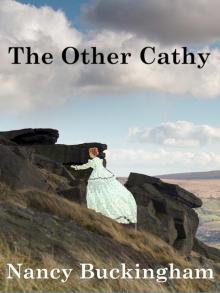 The Other Cathy
The Other Cathy Design for Murder
Design for Murder Valley of the Ravens
Valley of the Ravens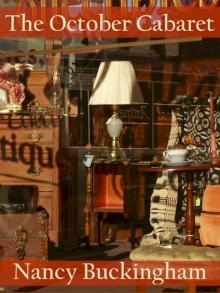 The October Cabaret
The October Cabaret Model Murder
Model Murder Murder in the Cotswolds
Murder in the Cotswolds Deadly Deceit
Deadly Deceit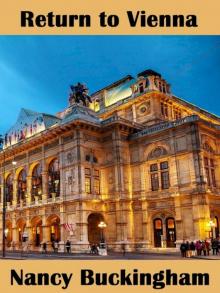 Return to Vienna
Return to Vienna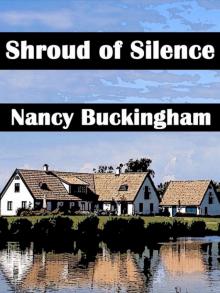 Shroud of Silence
Shroud of Silence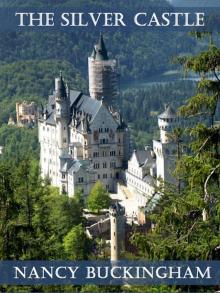 The Silver Castle
The Silver Castle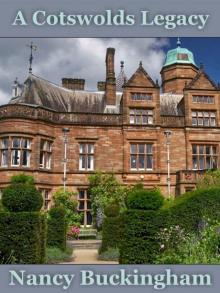 A Cotswolds Legacy
A Cotswolds Legacy Marianna
Marianna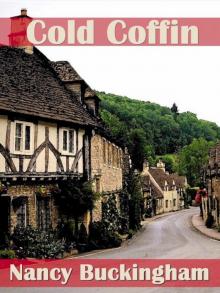 Cold Coffin
Cold Coffin Kiss of Hot Sun
Kiss of Hot Sun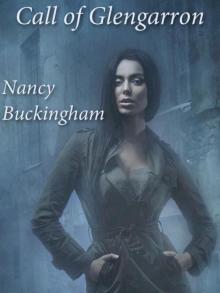 Call of Glengarron
Call of Glengarron Quest for Alexis
Quest for Alexis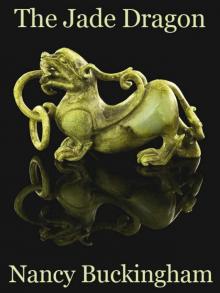 The Jade Dragon
The Jade Dragon